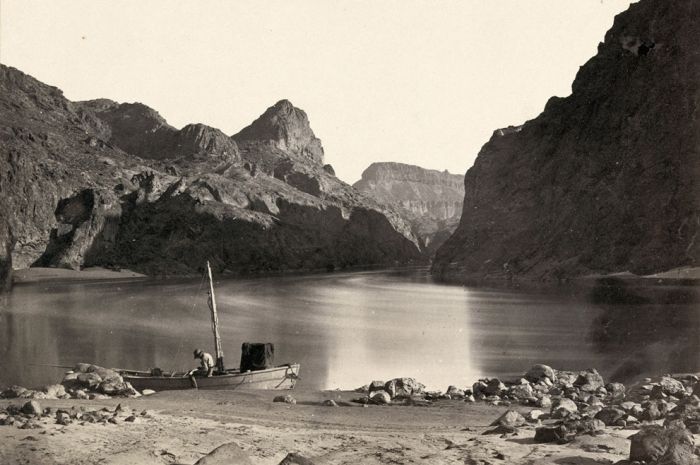|
|
History: American Old West, United States
|
The service was short-lived, however, as the continental telegraph was completed on October 24, 1861, just eighteen months later. Samuel F. B. Morse developed his telegraph system in the 1830s. It found acceptance by the mid 1840s, and over 50,000 miles (80,000 km) of wire were laid out to form a single national network. The telegraph and the Morse Code made possible the instantaneous transmission of information and the beginning of the tele-communications industry. The new national communication system soon proved a boon to newspapers, to freight hauling, to weather reporting, to law enforcement, and to the railroads.
Though Russell did get a government contract, his business had considerable losses anyway and failed. After the Pony Express service folded, mail continued by overland coach and by sea. However, Wells Fargo (established in 1852) maintained special courier services across the Sierras for carrying gold and mail through the 1860s, and its banking, freighting, and business services flourished in California. It grew through the consolidation of other overland mail companies until the opening of the transcontinental railroad in 1869 caused Wells Fargo to realign its services and delivery routes.
• Bleeding Kansas
By the mid-1850s, the Kansas territory had a population of only a few hundred settlers but it became the focus of the slavery question. Of its neighboring states, Missouri was a slave state and Iowa was not. With the Kansas-Nebraska Act of 1854, Congress repealed the Missouri Compromise which blocked slavery in Kansas, therefore leaving the decision up to Kansas. The stakes were high. Adoption of slavery in Kansas would have given the slave states a two-vote majority in the Senate and abolitionists were intent on blocking that. To influence the territorial decision, abolitionists (also called "Jayhawkers" or "Free-soilers") financed the migration of anti-slavery settlers. But pro-slavery advocates secured the outcome of the territorial vote by bringing in "Border Ruffians", rowdies from Missouri who stuffed ballot boxes and intimidated voters. The anti-slavers then sent Sharps rifles ("Beecher's Bibles") and ammunition to supporters in Kansas, leading to widespread violence and destruction which prompted the New York Tribune to call the territory "Bleeding Kansas."
|
|









